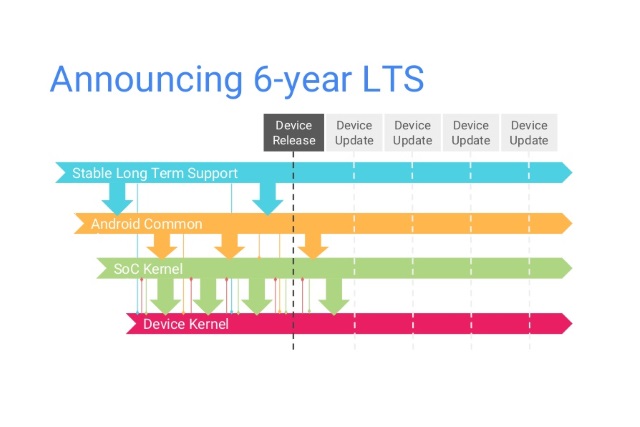
Great news for Android: Linux kernel Long Term Support triples to 6 years
As Android is based on Linux, the existing two-year lifecycle for Long Term Support (LTS) kernels is restrictively short. But, during a presentation about Android's Project Treble, Google's Iliyan Malchev announced that this is going to -- appropriately -- treble to six years.
This will address what has become a serious issue for chip-makers. During the production process, they need to pick the most recent LTS kernel to work with to ensure longevity, but the length of time it takes to design and produce chips means that much of the two years of support is used up by the time of release.
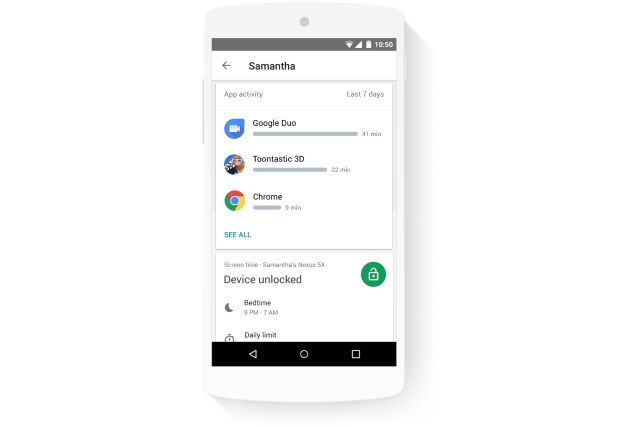
Google launches Family Link parental control solution for Android
After a period of beta testing, Google's new parental control system for Android and iOS -- Family Link -- has been launched to the public. Google says that the feature makes "Android better for kids and families," and it places parents in control of what their kids can do.
The feature is available to everyone in the US without the need for an invite (the beta period was invite-only), and Google describes the tools as being a way to bring kids and their parents into the Android ecosystem. It can be used from an Android phone or an iPhone to control kids' use of an Android device.
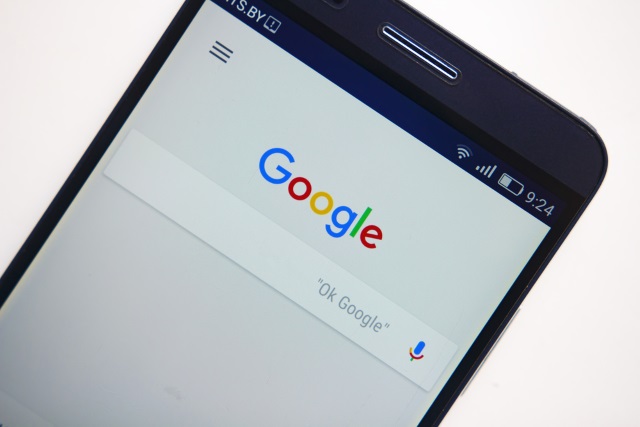
PSA: Google quietly discontinues NFC Smart Unlock without explanation
Android users have been slowly discovering that Google has killed off NFC Smart Unlock. The feature, which makes it possible to unlock a phone with an NFC device such as a ring or bracelet, has been discontinued without explanation.
Earlier in the month, Android users started to post messages on Google's Issue Tracker website, indicating that the feature was no longer available to them. Three weeks later, Google has finally responded, indicating that NFC Smart Unlock has been deprecated.
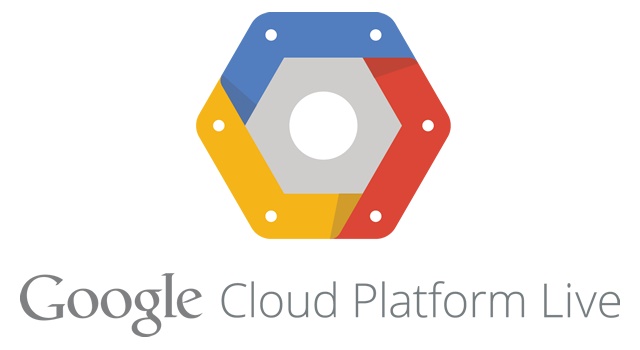
Google introduces per-second billing for Compute Engine
Google Cloud Platform has introduced per-second billing for App Engine, Cloud Dataproc, Compute Engine and Container Engine users, following a similar announcement made by rival AWS last week.
However, while Amazon's cloud arm announced that the new pricing scheme, which involves a one-minute minimum, will apply to EC2 customers starting October 2, the per-second billing on Google Cloud Platform's aforementioned cloud services is live now. Previously, customers were billed by the minute.
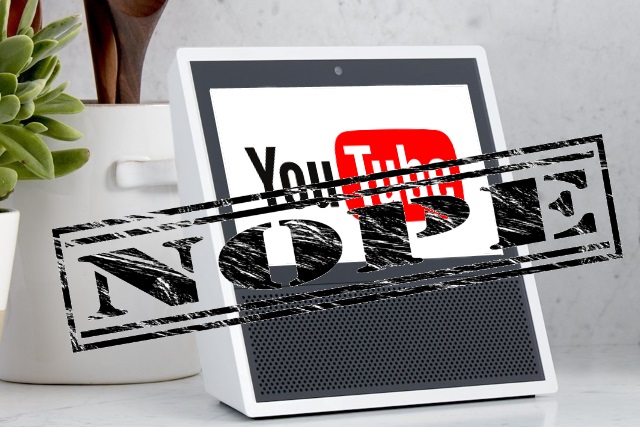
Google pulls YouTube from Amazon Echo Show for ToS violations
If you have heard Alexa utter the message "Currently, Google is not supporting YouTube on Echo Show," you'll be aware of the issue: Google has pulled YouTube from the Amazon Echo Show.
Google says that Amazon's Echo-with-a-screen creates a "broken user experience", and it seems the company would rather there was no customer experience than a broken one. A war of words has erupted between the two companies, and neither is particularly forthcoming with detail.

Google introduces zero-touch enrollment tool for Android devices
Employees given one of the most popular choices of Android smartphones can now expect their devices to arrive preconfigured, meaning they can use them out of the box without the typical tedious -- albeit necessary -- setup process.
A new tool rolled out by Google, called zero-touch enrolment, aims to result in less work for both administrators and end-users. Admins will be sure all corporate policies are always in place, and end users only need to log in to start using their new smartphone.
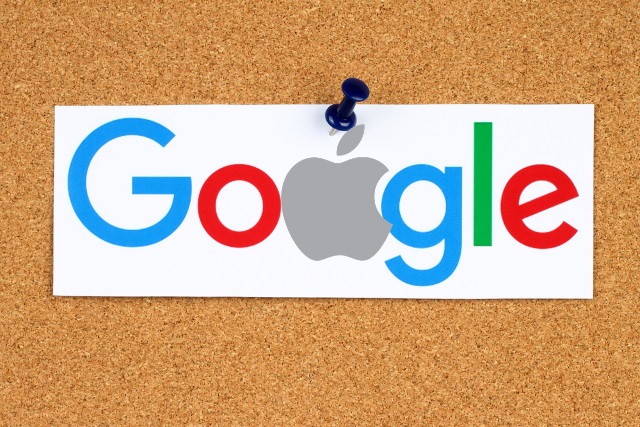
iOS Siri and Search, and macOS Spotlight, are now powered by Google
Apple is switching from Microsoft Bing to Google search to power Siri and Search in iOS, and Spotlight in macOS. The changeover is taking place right now, and should be complete by the end of the day.
The search switch coincides with the launch of macOS High Sierra, but Mac users will find that Bing will still be used for image searches in both Siri and Spotlight.
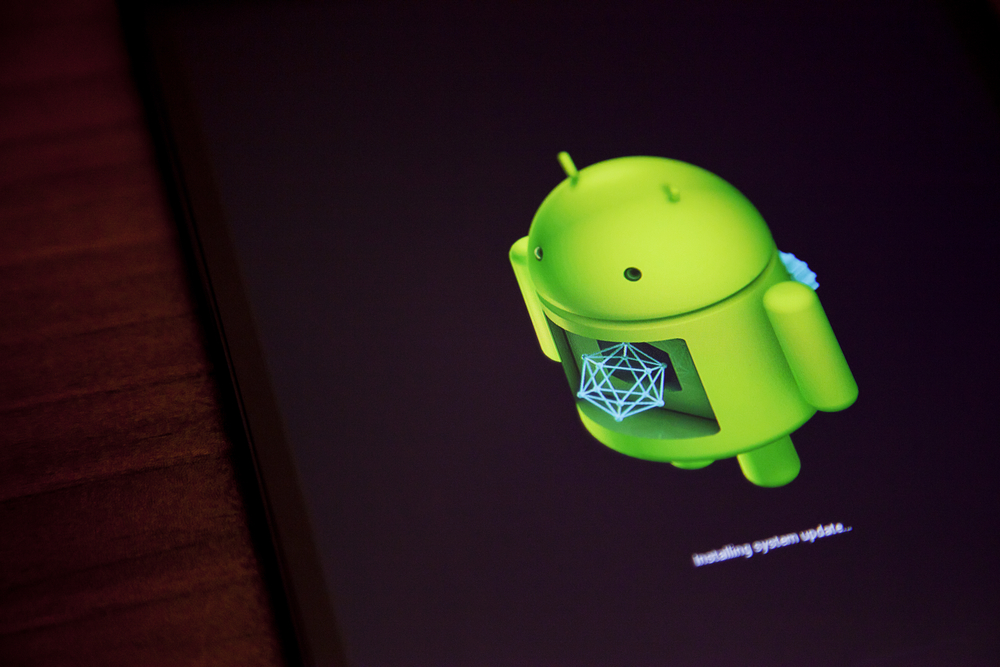
Android's 'Check For Update' button now works and actually checks for OTA updates!
Updating Android can be a painful experience depending on the handset you have and the carrier you're with. You might hear that an update is available, but find nothing shows up when you hit the Check For Update button. Now this should be changing... and not just for Oreo users.
Many Android users will have experienced the frustration of knowing full well that there is an update available for their device, but it's not offered up automatically. Even more annoyingly, it's often the case that even when performing a manual check, updates remain unavailable for download. Google has announced that: "the button in Settings to check for an update actually works now," so there should be no need for sideloading OTA updates.
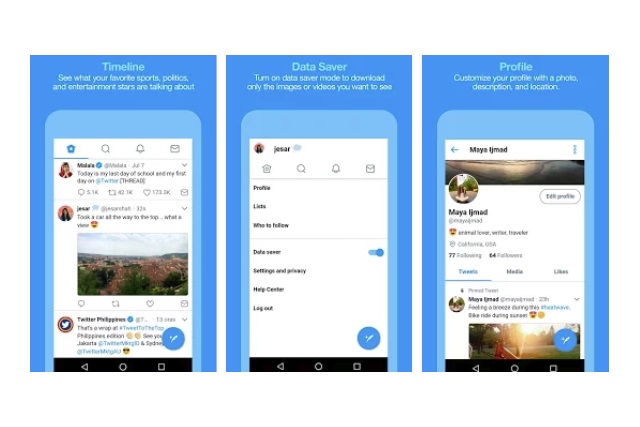
Experimental Twitter Lite app is now available for Android
All of the major players have been busy creating "lite" versions of their apps and online experiences. Microsoft has LinkedIn Lite, Facebook has both Facebook Lite and Facebook Messenger Lite, and Google has its Search Lite app.
Back in April, Twitter decided to get in on the lite action by launching Twitter Lite, a cut-down, data-friendly version of its mobile website. Now the micro-blogging service has gone further and released a Twitter Lite app.
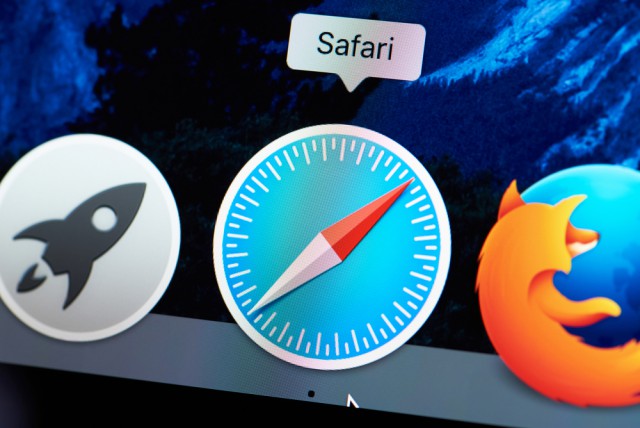
Safari has more security vulnerabilities than all other major browsers combined
Apple's Safari has more security vulnerabilities than Google Chrome, Mozilla Firefox, Microsoft Edge and Internet Explorer combined, according to a new report from Google's Project Zero.
Using an automated testing tool called Domato, Project Zero's Ivan Fratric analyzed the most popular desktop browsers and discovered two security vulnerabilities in Chrome, four in Firefox and Internet Explorer, six in Edge and 17 in Safari.
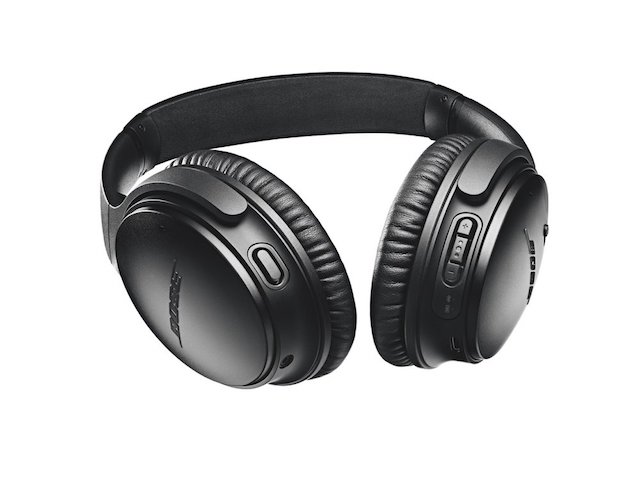
Bose releases QC35 II noise-cancelling Bluetooth headphones with dedicated Google Assistant button
Virtual assistants are changing the way people organize their lives. With the help of Google Assistant, Alexa, Cortana, or Siri, you can easily access information in a more natural way. Using your voice, you can set reminders, alarms, and more. It really is like having a human assistant by your side helping you manage your life.
Today, Google and Bose announce a new set of headphones that take the virtual assistant out of your phone and put it in your ears. You see, the Bose QC35 II wireless Bluetooth headphones have a dedicated Google Assistant button, meaning you can summon it by pressing on the ear cup -- your phone can remain in your pocket. The headphones are compatible with both Android and iPhone.
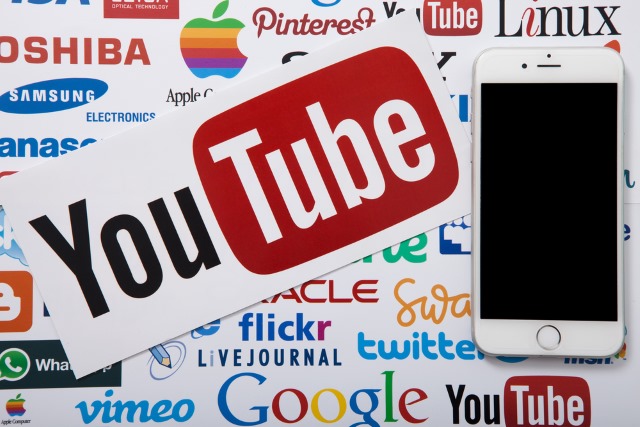
Google showed ads on YouTube Red even though it's supposed to be ad-free
One of the perks -- arguably the main perk -- of paying for YouTube Red is that your subscription fee gives you an ad-free experience. At least that's the idea...
Google has now admitted that it was in fact running ads on its premium video service despite promising not to. This was not a change of heart or policy, however; the search giant is putting it down to an "underlying issue" which it is working to fix. In addressing the issue with users, though, it seems Google also failed to understand its own policies.

Google essentially buys human beings in $1.1 billion HTC agreement
There have been rumors for a while now that Google was going to buy the struggling HTC. This seemed like a wonderful idea, as HTC makes great smartphones, which is good for the overall health of the Android market.
Today, a deal finally happens, but Google didn't buy HTC outright. Strangely, as the deal is laid out, the search giant has seemingly bought HTC employees. Yes, for $1.1 billion, the search giant has sort of purchased human beings -- plus it gets access to some intellectual property. HTC gets a much-needed big influx of cash.
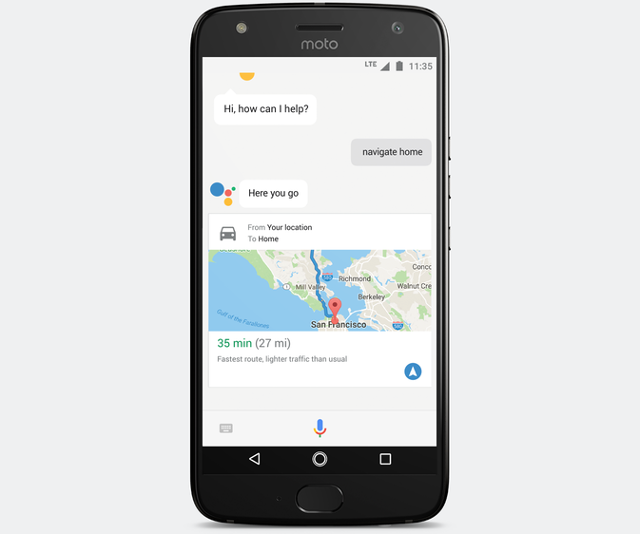
Android One Moto X4 smartphone coming to Google's Project Fi cellular service
Google's Project Fi is a really neat way to get affordable cellular service for your smartphone. It offers exceptional coverage by intelligently switching among the networks of Sprint, T-Mobile, and U.S. Cellular. Unfortunately, the service is limited to very few Android smartphones -- if you have an iPhone, for instance, you are totally out of luck. To make matters worse, as of late, the only in-stock compatible phones are Google's own Pixel devices -- they are fairly expensive, starting at $649.
Today, the search-giant finally introduces a new affordable offering for Project Fi -- the Android One Moto X4 smartphone by Lenovo. It runs pure Android and should get timely OS upgrades. Best of all, it costs significantly less than the Pixel or Pixel XL.

Theresa May wants tech firms to remove 'extremist content' faster… but it's not quite that simple
UK prime minister Theresa May has called on the likes of Microsoft, Google, Twitter and Facebook to act faster to remove terrorism-related and extremist content. At the moment, it takes an average of 36 hours to remove content shared by the likes of Isis, and May wants this slashed to just two hours.
But even this is not enough for the government. It wants technologies to be developed -- or refined -- that will identify this sort of content and prevent it from getting online in the first place. Facebook agrees -- its love of AI is well-known -- but the solution to online extremism is not as simple as saying "technology firms need to do more."
